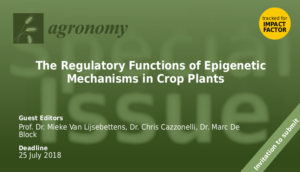- About
- Members
- Join
- Member log in
- Membership Renewal
- Member directory
- Life Members
- ASPS Life Member Professor Graham Farquhar
- ASPS Life Member Associate Professor Hendrik (Hank) Greenway
- ASPS Life Member Dr Marshall (Hal) D Hatch
- ASPS Life Member Dr Paul E Kriedmann
- ASPS Life Member Dr Mervyn Ludlow
- ASPS Life Member Emeritus Professor Rana Munns
- ASPS Life Member Conjoint Professor Christina E Offler
- ASPS Life Member Professor (Charles) Barry Osmond
- ASPS Life Member Emeritus Professor John W Patrick
- ASPS Life Member Dr Joe Wiskich
- Corresponding Members
- Elected Fellows
- Events
- Awards & Funding
- Employment
- Publications
- Research
- Teaching
- Menu
Managing Global Resources For A Secure Future with help from the Plant Nutrition Trust Award
31 May 2018
Submitted by: Arjun Pandey
PhD Candidate , School of Agriculture and Food
The University of Melbourne
1. Tri-society conference in Tampa, Florida
 The American tri-society conference, “Managing Global Resources For A Secure Future”, jointly organised by Soil Science Society of America, American Society of Agronomy and Crop Science Society of America was held in Tampa in Florida, USA, from 22-25 October 2017. Around 4000 scientists from around the world attended the conference.
The American tri-society conference, “Managing Global Resources For A Secure Future”, jointly organised by Soil Science Society of America, American Society of Agronomy and Crop Science Society of America was held in Tampa in Florida, USA, from 22-25 October 2017. Around 4000 scientists from around the world attended the conference.
I gave an oral presentation titled, Microbially mediated nitrogen loss and retention pathways in Australian rice paddies. The 15 minutes oral presentation was based on my experimental work during my PhD candidature. The presentation included my findings on the nitrogen loss and retention pathways in Australian rice paddies. Presenting my work in front of experienced scientists from around the world wasa unique experience for me. I also got some important questions and feedback during the discussion session after my presentation which helped me to think about my research findings in a broader perspective. 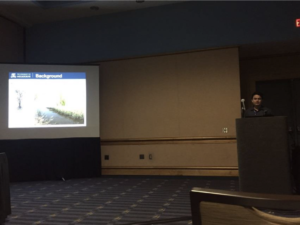
I met several scientists from around the world those who are working in my field of research. This provided me with the opportunity to build networks and to know the research activities being carried out in other research institutions. Lastly, I attended presentations from several scientist during the conference. This gave me an opportunity to learn about novel findings in the soil and crop sciences.
2. Visit to the Virginia Institute of Marine science (VIMS), Virginia, USA
 I visited Virginia Institute of Marine Science (VIMS; see photo) and stayed in the institute for two days during 19-20 October. Scientists in the VIMS are mainly focused on costal and estuarine sciences and also in grassland ecosystems. There are experts working in nitrogen (N) transformation in anaerobic soils and sediments using 15N isotopic tracing technique in the institution. I visited the institute to meet Associate Professor Bongkeun Song and his research team who are studying N transformation using 15N isotope tracing technique. This is one of the techniques I have been using in my PhD research work.
I visited Virginia Institute of Marine Science (VIMS; see photo) and stayed in the institute for two days during 19-20 October. Scientists in the VIMS are mainly focused on costal and estuarine sciences and also in grassland ecosystems. There are experts working in nitrogen (N) transformation in anaerobic soils and sediments using 15N isotopic tracing technique in the institution. I visited the institute to meet Associate Professor Bongkeun Song and his research team who are studying N transformation using 15N isotope tracing technique. This is one of the techniques I have been using in my PhD research work.
I had an excellent meeting with Associate professor Bongkeun Song, whom is working on nitrogen transformation pathways in various ecosystems including agroecosystem. He is an expert on using 15N tracer to quantify nitrogen transformation pathways. I was in contact with Bongkeun for the last two years through emails and I had frequent discussion on my research methodology with him. I met with Bongkeun Song on the 20th of October, 2017. We had a discussion on my research, in particular on the research methodology and outcome of my experiments. I got some valuable inputs from him on my research work. A/Professor Bongkeun took me around his laboratory and explained on the use of some recent Isotopic Ratio Mass Spectrometry (IRMS) instruments and their use in our research. We also discussed about possible collaboration in the future. I also met with few other researchers in the VIMS that are working in my research area. We had a discussion on the methods and instrumental application in our search.
Acknowledgements: The financial support from the Plant Nutrition Trust Award provided me with a great oppurtunity to attend one of the most important confreneces in the area of soil and crop sciences. I would like to sincerely thank the trust.
Contact: arjunp@student.unimelb.edu.au
Invitation to submit to a special issue “The Regulatory Functions of Epigenetic Mechanisms in Plants”
22 May 2018
Special Issue “The Regulatory Functions of Epigenetic Mechanisms in Plants”
Guest Editor: Dr. Chris Cazzonelli
Senior Lecturer in Plant Molecular Biology, Environmental Epigenetics Laboratory, Hawkesbury Institute for the Environment, Building L9.G30, Bourke St, Richmond, Australia
April GPC E-Bulletin and employment opportunities.
20 May 2018
We have several employment opportunities posted on the ASPS job board here.
|
|||||||||||||||||||||||||||||||||||||||
|
|||||||||||||||||||||||||||||||||||||||
|
|||||||||||||||||||||||||||||||||||||||
|
The ‘sweet spot’ in plant-microbe symbiotic relationships
03 April 2018
BY JONATHON PLETT
2017 GOLDACRE MEDAL WINNER
Growing up in the countryside of Ontario, Canada, Jonathan Plett was exposed to plants and planted environments from a very early age. While a love for agriculture and ‘useful’ plants would come to fruition in his research career, Jonathan’s first induction into the world of plants was through flower gardening – a hobby introduced to him at the age of 10 by an English couple active within the local gardening club. Over the years of working with plants, Jonathan became fascinated by the mechanics of how plants grew and flourished and how different environmental conditions affected these processes.
 As early as the age of 12 Jonathan knew that he wanted to have a job working with plants in some form – his first science fair project was testing hydroponic systems for optimal plant growth. Through his undergraduate work in college, this interest was further strengthened and led to a PhD in plant molecular biology. This area of science has continued to fuel his imagination and to fascinate him to this day. Jonathan did his PhD studies with Dr. Sharon Regan at Queen’s University in Canada where he studied the biological function of the plant hormone ethylene. One aspect of this hormone was its huge role in plant:microbe interactions. This led to a career shift in his post doctoral work and to his current position as a Lecturer in the Hawkesbury Institute for the Environment at Western Sydney University where he considers the molecular mechanics of how plants interact with soil-borne microbes.
As early as the age of 12 Jonathan knew that he wanted to have a job working with plants in some form – his first science fair project was testing hydroponic systems for optimal plant growth. Through his undergraduate work in college, this interest was further strengthened and led to a PhD in plant molecular biology. This area of science has continued to fuel his imagination and to fascinate him to this day. Jonathan did his PhD studies with Dr. Sharon Regan at Queen’s University in Canada where he studied the biological function of the plant hormone ethylene. One aspect of this hormone was its huge role in plant:microbe interactions. This led to a career shift in his post doctoral work and to his current position as a Lecturer in the Hawkesbury Institute for the Environment at Western Sydney University where he considers the molecular mechanics of how plants interact with soil-borne microbes.
The goal of Jonathan’s research is to foster the relationship between symbiotic soil-borne micro-organisms and plants. These organisms increase plant productivity through improved nutrient availability and plant disease resistance. As intensified agricultural and forestry production is resulting in soils with reduced nutritional value and as plant diseases are becoming more virulent, growers and foresters are becoming more reliant on these symbiotic relationships to support the health and productivity of their plants. Therefore, we need to select plants that will be able to gain the most from relationships with symbiotic micro-organisms. Currently we only have a rudimentary idea of the plant genetics that enable these symbiotic relationships to occur, let alone how we could select plants that foster these symbiotic relationships. Jonathan’s research is addressing this critical lack of knowledge by studying the plant pathways targeted by symbiotic ‘effector’ proteins during the initial stages of the interaction between plants and micro-organisms. Jonathan’s research has shown that these effectors, which are small-secreted microbial proteins, are used by mycorrhizal fungi to manipulate the plant immune response, thereby fostering symbiosis. This means that the tactics used by mycorrhizal fungi to gain access to their host tissues mirror those of pathogenic organisms, with the production of proteins used to overcome host defences (Plett et al., 2014a). Thus, in response, the plant has evolved mechanisms to defend itself from excessive ingrowth of mycorrhizal hyphae, while still enjoying the beneficial aspects of the relationship.
Jonathan’s work has shown that the plant uses two classic plant hormone pathways: jasmonic acid (JA) and ethylene, to limit fungal growth within plant tissues (Plett et al., 2014b). His work in the metabolic regulation during mycorrhizal colonization of plants has also shown that plants produce toxic secondary compounds to slow fungal growth and that only certain mycorrhizal fungi are able to overcome these defences by either metabolising the defence compound (Tschaplinski et al., 2014) or by inducing the expression of proteases and xenobiotic efflux pumps to weather the onslaught raised by the plant (Plett et al., 2015). Altogether, the results of Jonathan’s work have led to a paradigm shift in how we understand the core relationship between plants and their associated mycorrhizal fungi. His data are now being used to screen new tree and, more recently, crop lines (Plett et al., 2016), to find the ‘sweet spot’ in immune defence that enables plants to maximise the benefits from mycorrhizal fungi without compromising disease resistance. The application of these findings will result in more productive tree plantations and better food security in crops.
Contact Information:
Email: j.plett@westernsydney.edu.au
Twitter: @FungiDownUnder
Website: https://www.westernsydney.edu.au/hie/people/researchers/doctor_jonathan_plett
Google Scholar: https://scholar.google.com/citations?user=Pg1MvmEAAAAJ&hl=en
Key References:
Plett JM, Daguerre Y, Wittulsky S, Deveau A, Melton SJ, Kohler A, Morrell-Falvey J, Brun A, Veneault-Fourrey C, Martin F. (2014a) The effector protein MiSSP7 of the mutualistic ectomycorrhizal fungus Laccaria bicolorinteracts with PopulusJAZ proteins. Proceedings of the National Academy of Science USA. 111:8299-8304.
Plett JM, Khachane A, Ouassou M, Sundberg B, Kohler A, Martin F. (2014b) Ethylene and jasmonic acid act as negative modulators during mutualistic symbiosis between Laccaria bicolor and Populus roots. New Phytologist 202:270-286.
Plett JM, Tisserant E, Brun A, Morin E, Grigoriev IV, Kuo A, Martin F, Kohler A. (2015) The mutualist Laccaria bicolor expresses a core gene regulon during the colonization of diverse host plants and a variable regulon to counteract host-specific defenses. Molecular Plant-Microbe Interactions28:261-73.
Plett JM, Plett KL, Bithell SL, Mitchell C, Moore K, Powell JR, Anderson IC. (2016) Improved Phytophthoraresistance in commercial chickpea (Cicer arietinum) varieties negatively impacts symbiotic gene signaling and symbiotic potential in some varieties. Plant, Cell & Environment.39:1858–186.
Tschaplinski TJ, Plett JM, Engle NL, Deveau A, Cushman KC, Martin MZ, Doktycz MJ, Tuskan GA, Brun A, Kohler A, Martin F. (2014) Populus trichocarpa and Populus deltoidesexhibit different metabolomic responses to colonization by the symbiotic fungus Laccaria bicolor. Molecular Plant-Microbe Interactions27:546-556.
ASPS employment opportunities
18 March 2018
Hello ASPS members,
We have several new employment opportunities that have been posted on our job board.
Crop Simulation Software Helps to Find Better Crops
23 January 2018
Plant researchers have developed an online application that predicts how crop growth is affected by photosynthetic changes at the molecular, cellular or leaf level of plants.
Food production depends on photosynthesis, the process by which plants capture sunlight and convert it into plant growth, biomass and grain. In the next decades, the world population is expected to reach 9.5 billion and food demand will increase significantly, so improving photosynthesis has become a global research priority.
“Enhancing photosynthesis has the potential to increase crop yields, but the link between photosynthesis and crop productivity is not straightforward because it crosses multiple scales of biological organisation. We created modelling tools that help us navigate through these complexities to identify targets that have the greatest impact on crop yield,” says Dr Alex Wu, a researcher with the ARC Centre of Excellence for Translational Photosynthesis (CoETP) at the University of Queensland.
This online “crystal ball” of crop growth, a small part of the cross-scale model, is designed to show researchers what would happen to a crop canopy with changes in photosynthesis under variable environmental and canopy conditions such as radiation, temperature, levels of CO2, canopy size and amount of nitrogen in leaves.
“Developing simulation tools like these, we are working towards connecting lab-based research and discoveries, at the leaf or molecular level, with crop productivity under variable environmental conditions,” Dr Wu said.
ARC CoETP Chief Investigator Professor Graeme Hammer says that researchers could now use the online application and see how their work is having an impact on crops in the field, which will radically accelerate the discovery process.
“They can also incorporate high temperature or high CO2 conditions to test effects of climate change,” he said.
The Diurnal Canopy Photosynthesis Simulator (DCaPS) online application, calculates diurnal (period from sunrise to sunset) canopy CO2 assimilation and daily biomass increment for a crop under well-watered conditions. DCaPS is now publicly available at www.dcaps.net.au.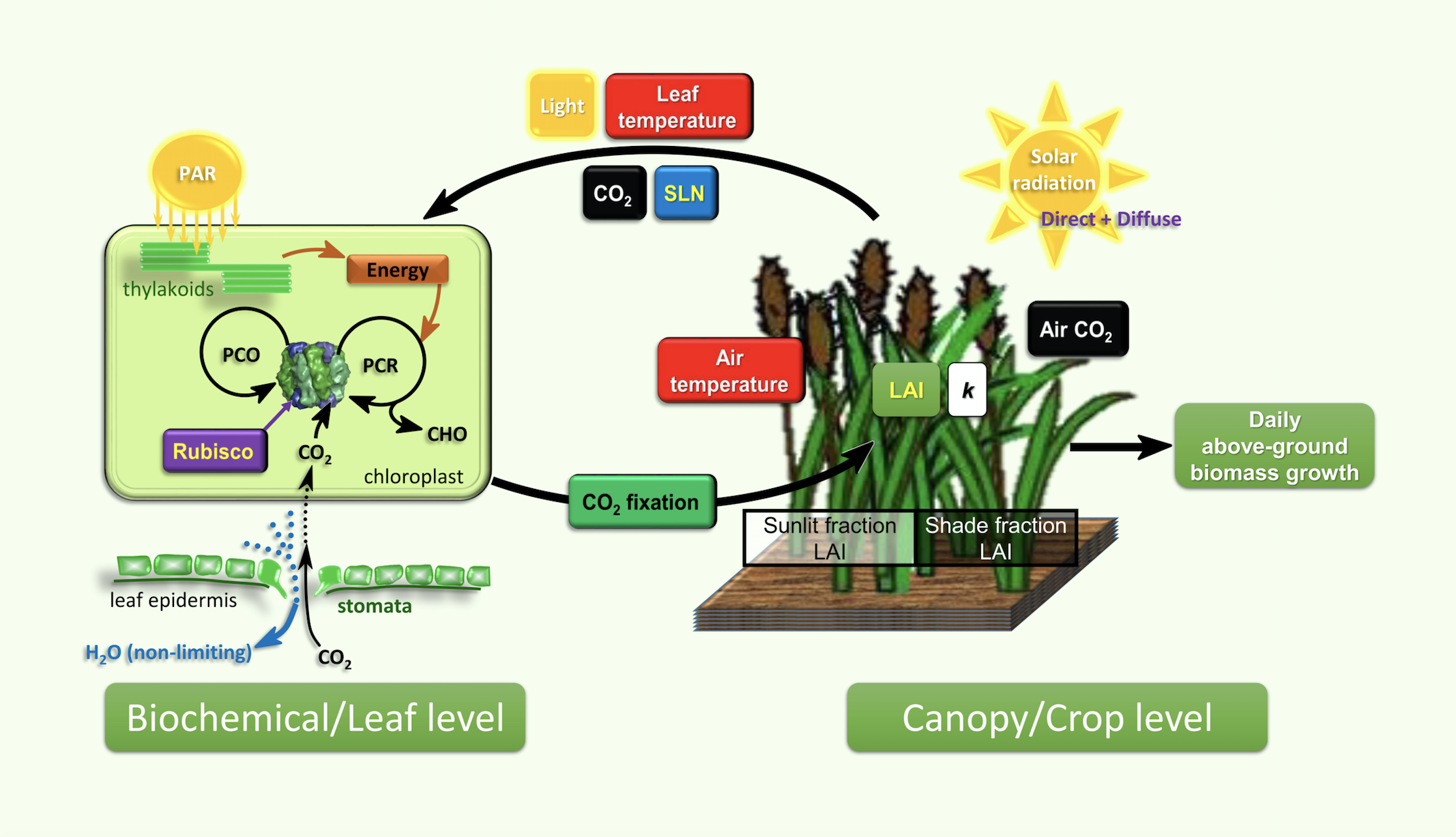
This study was published recently in the journal Functional Plant Biology and was funded by the Australian Research Council (ARC) Centre of Excellence for Translational Photosynthesis and the Queensland Alliance for Agriculture and Food Innovation (QAFFI) at the University of Queensland. Article appeared in “Leaflet” Newsletter of the CoE.
New opportunities for ASPS members
06 November 2017
Dear ASPS members,
We have a few new opportunities for you and the monthly GPC e-bulletin.
- There is an opportunity to nominate for the STA Executive Committee – NOTE applications are due today (see details below)
- The 2018 Peter Goldacre award is open. Nominations close 9 December 2017. Apply here.
- The 2018 ASPS teaching award is open. Applications close 9 December 2017. Apply here.
- The RN Robertson Travelling Fellowship award is open. Applications close 19th January 2018. Apply here.
- A new employment opportunity has been posted. More details here.
- A conference added to our events page. more details here.
Dear ASPS members,
The STA Executive Committee closes on Monday 6 November. You will find details at https://scienceandtechnologyaustralia.org.au/search-begins-for-stem-leaders-to-join-sta-executive-committee/.
Voting will take place at the AGM on 23 November. Please consider applying.
Thank you in advance and best regards,
Shannon Wong
| Shannon Wong |
| Executive Assistant
Working days: Tuesday – Thursday |
| T: 0488 262 153 | E: shannon.wong@sta.org.au PO Box 259, Canberra City ACT 2601Website | Twitter | Facebook | YouTube |
|
|||||||||||||||||||||||||||||||||||||||
|
|||||||||||||||||||||||||||||||||||||||
|
|||||||||||||||||||||||||||||||||||||||
|
ASPS Travel Award Report Recipient Hones Presentation Skills at ComBio2017
18 October 2017
By
Viviana Rosati
Thanks to an ASPS Travel Award, I was able to attend the ComBio2017 conference this October in Adelaide, South Australia. It was personally and professionally fulfilling not only to be attending, but presenting, at my very first ComBio. The conference is the main forum for the Australian Society for Biochemistry and Molecular Biology (ASBMB), the Australia and New Zealand Society for Cell and Developmental Biology (ANZSCDB), and the Australian Society of Plant Scientists (ASPS), with the societies coming together for three days to promote the latest in research and education, as well as enable invaluable network opportunities.
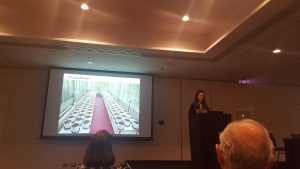 For me, a highlight of the conference was the plenary Annals of Botany Lecture on the second day featuring Professor Cathie Martin from the John Innes Centre. Professor Martin works to increase polyphenol phytonutrients in fruits: compounds with therapeutic properties that could potentially mitigate artherosclerosis and other inflammatory conditions. She emphatically stated: ‘Medicine is not healthcare, food is healthcare. Medicine is sickcare’ – an appropriate reminder for us all.
For me, a highlight of the conference was the plenary Annals of Botany Lecture on the second day featuring Professor Cathie Martin from the John Innes Centre. Professor Martin works to increase polyphenol phytonutrients in fruits: compounds with therapeutic properties that could potentially mitigate artherosclerosis and other inflammatory conditions. She emphatically stated: ‘Medicine is not healthcare, food is healthcare. Medicine is sickcare’ – an appropriate reminder for us all.
Over the next two days I attended an array of symposia including: Plant Energy Use Efficiency, Next-generation Phenotyping, Plant Walls and Membranes, Abiotic Stress Tolerance, Microbe-Plant Interactions, and Plant Reproductive Biology. All talks gave me vital insight into the current plant biology research being undertaken worldwide, and offered me several new avenues for my own research – particularly techniques to elucidate the molecular regulation of genes involved in emerging regulatory pathways. The conference delivered an impressive balance of graduate students, post-doctoral researchers, associate professors, and professors presenting their cutting-edge research or stories of discovery.
As part of the crop productivity symposium, I presented my research topic Drought Response in Low-Cyanogenic Sorghum bicolor Mutants; with the presentation being very well received. I took a number of questions during the allocated question time and was given valuable advice driving new exploration within the scope of my research program. It is now the fourth time within a two-year period that I have been a conference presenter. As one might expect, my confidence grows with each presentation and as I become more adept; and there is always a constant challenge to improve and hone my skills in order to deliver a story with a clear message that engages interest and drives impact.
I am extremely grateful to ASPS for providing funding that enabled me to attend the conference and present my research to the plant science community.
Contact: Viviana Rosati (viviana.rosati@monash.edu)
41st New Phytologist Symposium: Plant sciences for the future
18 October 2017
Registration now open!
41st New Phytologist Symposium: Plant sciences for the future
11–13 April 2018, Nancy, France
https://www.newphytologist.org/symposia/41
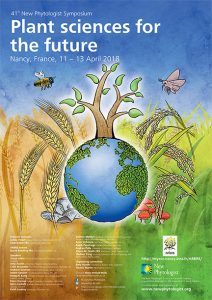 The 41st New Phytologist Symposium will provide new insights into the evolutionary forces and molecular mechanisms that govern plant development and physiology, and their interactions with biotic and abiotic cues.
The 41st New Phytologist Symposium will provide new insights into the evolutionary forces and molecular mechanisms that govern plant development and physiology, and their interactions with biotic and abiotic cues.
Invited speakers from the New Phytologist Editorial Board will highlight emerging topics in plant sciences as well as the application of modern technologies to capture the complex mechanisms driving plant development, physiology, interactions and evolution.
Eighteen leading scientists will speak at the symposium along with early career researchers, selected to give talks following submission of poster abstracts. Travel grants are available.
Travel grant deadline: Thursday 18 January 2018
Poster abstract deadline: Thursday 8 February 2018
More details and registration at https://www.newphytologist.org/symposia/41.
Science Meets Parliament 2017 – optimistic futures for plant scientists
12 October 2017
By
ARC DECRA Fellow, School of Agriculture, Food and Wine
Waite Campus, University of Adelaide
Science Meets Parliament is an annual event of Science and Technology Australia (STA) bringing together 200 of Australia’s leading scientists and technologists to Canberra. This professional gathering stimulates and inform parliamentarians of how science contributes to our society and aims to inform public policy, and; to assist in professional development through providing participants with an insight into political, policy, media and parliamentary processes.
Australian Society of Plant Scientists gave me a wonderful opportunity to be a part of science meets parliament during March 2017. The event enabled me to get to know the views of some Australia’s most influential and passionate parliamentarians, science advisors, STEM professionals and media personalities.
Day one is all about professional development, building connections and collaborations . We were provided with useful tips on how to turn science into news, how science is used to shape public policy, how to convince a parliamentarian without using the word money or funding, and how to pitch my science in 60 seconds. I really felt optimistic about my future as a plant scientists after listening to the commitment of the government to further advance science and technology in years to come.
On day two, I met Hon Senators Chris Back and Chris Ketter face-to-face in their parliament office. I was really impressed by the way they listened and interacted with me to learn more about how grow crops can grow in salty soils. I was also inspired by the parliamentary speeches and organised forums during parliament. In particular, a glowing endorsement of curiosity driven by research undertaken by Professor Alan Mackay-Sim, Australian of the Year, resonated with me even after the completion of the event.
I also participated a breakfast event organised by the University of Adelaide’s external relations branch on day three which allowed me to interact as well as promote science and build new connections with South Australian parliamentarians and alumni.

Dr Jayakumar Bose, ASPS representative, and Hon Bill Shorten MP, and Leader of the Opposition at the Science Meets Parliament 2017 at the Great Hall of the Australian Parliament House in Canberra.
Contact Information: Jayakumar Bose (jayakumar.bose@adelaide.edu.au)
Recent Posts
Tags
Archives
- June 2025
- May 2025
- April 2025
- March 2025
- February 2025
- January 2025
- December 2024
- November 2024
- October 2024
- September 2024
- August 2024
- July 2024
- June 2024
- May 2024
- April 2024
- February 2024
- January 2024
- November 2023
- October 2023
- September 2023
- August 2023
- July 2023
- June 2023
- May 2023
- April 2023
- March 2023
- February 2023
- December 2022
- November 2022
- October 2022
- September 2022
- August 2022
- July 2022
- June 2022
- May 2022
- April 2022
- March 2022
- February 2022
- January 2022
- December 2021
- November 2021
- October 2021
- September 2021
- August 2021
- July 2021
- June 2021
- April 2021
- March 2021
- February 2021
- January 2021
- December 2020
- November 2020
- October 2020
- September 2020
- August 2020
- July 2020
- June 2020
- May 2020
- April 2020
- March 2020
- February 2020
- January 2020
- December 2019
- November 2019
- October 2019
- September 2019
- August 2019
- July 2019
- June 2019
- May 2019
- April 2019
- March 2019
- February 2019
- January 2019
- December 2018
- November 2018
- October 2018
- September 2018
- August 2018
- July 2018
- June 2018
- May 2018
- April 2018
- March 2018
- February 2018
- January 2018
- December 2017
- November 2017
- October 2017
- September 2017
- August 2017
- July 2017
- June 2017
- May 2017
- April 2017
- March 2017
- February 2017
- January 2017
- December 2016
- November 2016
- October 2016
- September 2016
- August 2016
- July 2016
- June 2016
- May 2016
- April 2016
- March 2016
- February 2016
- January 2016
- December 2015
- November 2015
- October 2015
- September 2015
- August 2015
- July 2015
- June 2015
- May 2015
- April 2015
- March 2015
- February 2015
- January 2015
- December 2014
- November 2014
- October 2014
- September 2014
- August 2014
- July 2014
- June 2014
Copyright 2017 Australian Society of Plant Scientists Disclaimer & Privacy
Website by Michael Major Media

